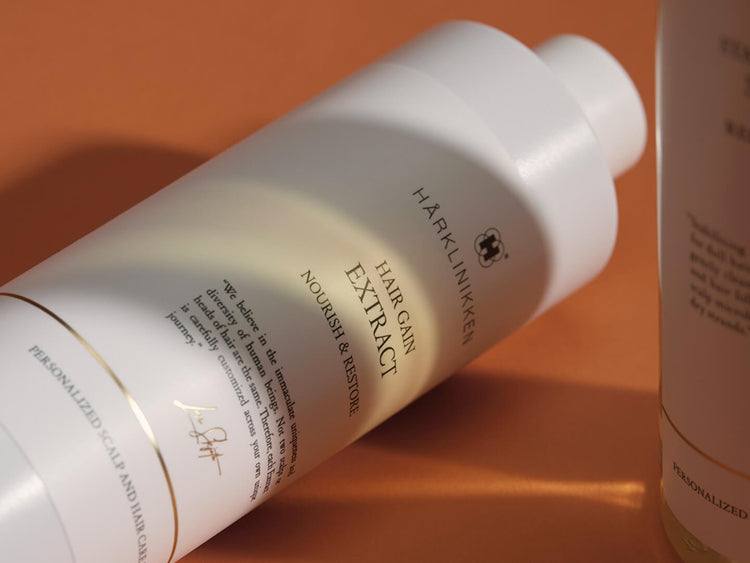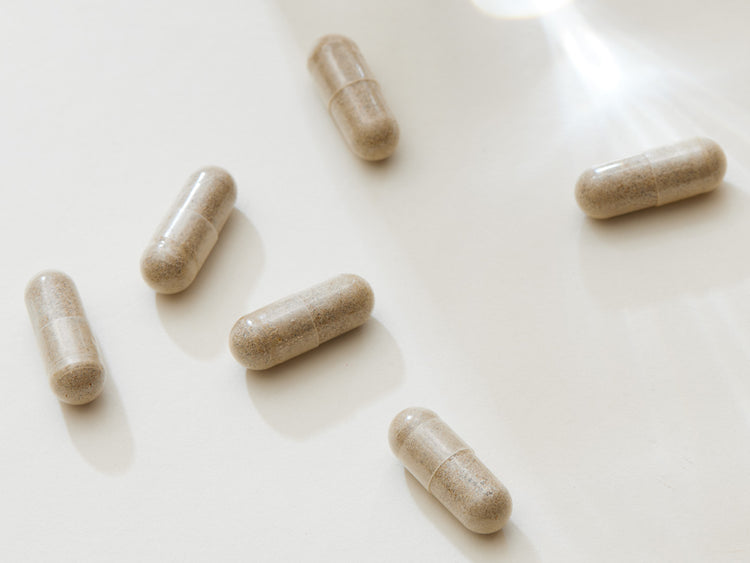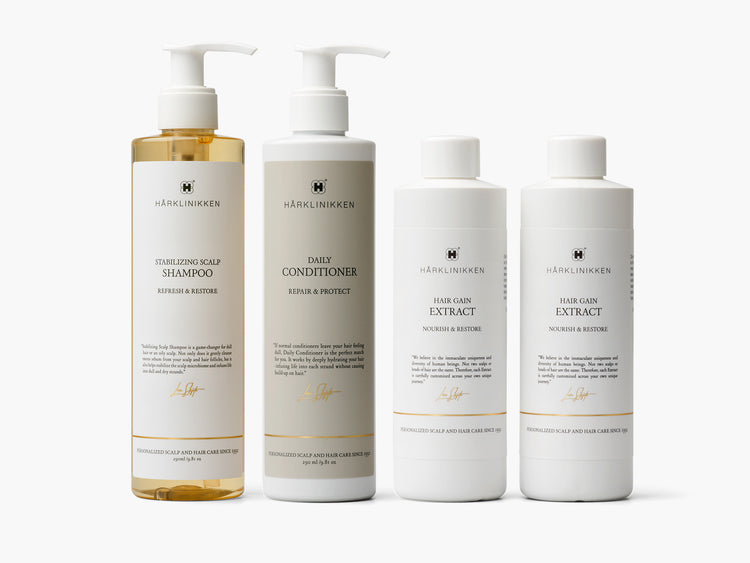In the world of so-called clean beauty, there are countless villains. Alcohol has become one of those "free-from” ingredients that many brands proudly don’t use. But the truth is not all alcohols are created equally –many are safe for scalp and hair (when carefully blended with other ingredients) and some actually benefit your strands. Additionally, the impact of a single ingredient depends on the concentration, what other ingredients are present in a formula, the type of product, the method of application, and more. Alcohol is an entire class of different ingredients, and it’s not quite as simple as “good” and “bad” types.
What is alcohol?
Alcohols are some of the most common organic compounds in existence. At their most scientific, they are organic compounds that are characterised by at least one hydroxyl functional group (a group with the chemical formula −OH) attached to a saturated carbon atom. They can be grouped into primary, secondary, and tertiary alcohols depending on where the hydroxyl group binds to the carbon atom. They can also come in simple small chain molecules or large complex branched molecules. These differences lead to many different properties of a large range of molecules that are collectively called alcohols. These differences mean alcohol has had a myriad uses for millennia – from flavouring agents to disinfectants and drinks.
What are long-chain and short-chain alcohols?
The alcohols typically used in hair products can be divided into two categories: short-chain and long-chain. Many people believe short-chain alcohols are “bad” and long-chain alcohols are “good,” but it’s a bit more complicated than that. We don’t like to dismiss ingredients without also considering what type of alcohol, how they are refined, their concentration, the type of product, how they are formulated with other constituents, and their method of application.
Why is alcohol used in haircare products?
Different alcohols are used for different purposes. But quite often, they are incorporated into formulas as solvents (to breakdown oils and other heavy ingredients) or to make a product dry quickly. There is a handful of alcohols that work as emollients – moisturising agents – that help boost hair hydration. It’s important to know that not all alcohols in hair products are risky at all, rather, it depends on the function and concentration of the formula as a whole. Let’s go into some of these functions:
Functional Solvents
Short-chain alcohols are highly volatile, which means they evaporate rapidly in air and have the potential to leave skin or hair feeling dry when used alone in high concentrations and with long periods of contact on hair and skin. Some formulas are made leveraging this property to deliver quick-drying effects as well as to dry out oily skin (think oil-mattifying setting sprays or to add texture to hair). That said, these properties also function effectively in dispersing heavier oily ingredients and to provide a refreshing feel to formulas. By dispersing heavier ingredients, a formula is able easily distribute ingredients in finer droplets that can reduce the drying-out effect. Some commonly used examples include:
- Ethyl alcohol (also known as ethanol, and the ingredient most referred to as “alcohol” in general) is used in many skin and hair products, hand sanitisers, alcoholic beverages, and much more. Although this alcohol is sometimes associated with drying out skin and hair, if formulated at specific levels with a particular concentration of emollients and humectants, it can leave the hair and skin feeling refreshed and protected as the alcohol helps to disperse heavier ingredients into fine droplets. This type of alcohol is often used in hair sprays and setting sprays for its quick-dry properties and its ability to provide a lightweight feeling by dissipating heavier oils.
- Denatured alcohol is ethyl alcohol with additives included that impact taste to discourage consumption.
- Isopropyl alcohol is also often incorporated in quick-dry formulas and setting sprays.
Functional Emollients
Long-chain alcohols are another form of alcohol often derived from natural fats and oils. Fatty alcohols are a common form of this type of alcohol and have low volatility and often serve as great ingredients to condition, nourish, and smooth skin and hair surfaces. They have similar properties to the more well-known fatty acids but with a non-ionisable polar group. Additionally, some fatty acids also have alcohol in their name because of the presence of the –OH group. Some commonly used examples include:
- Cetearyl alchohol is a fatty alcohol that’s great for hair and skin softening.
- Cetyl alcohol is a fatty acid that works to condition and moisturise hair. (These are fatty acids that are effective emollients.)
- Behenyl alcohol is a fatty alcohol that’s sometimes used for its emollient properties in detanglers, as it can increase slip.
- Lauryl alcohol is another fatty alcohol typically used as an emollient and sometimes also a cleansing agent.
Functional Preservatives
Alcohol can also be used as a preservative due to its antimicrobial properties, as they are able to disrupt the membrane of some microbial species to protect products from contamination. This helps to increase a product’s shelf-life and stability. These alcohols are used in small amounts in formulas and are safe for hair and skin contact too. Some commonly used examples include:
- Benzyl alcohol is an aromatic alcohol that’s often used as a preservative and sometimes fragrance.
- Phenethyl alcohol is typically used as a preservative to prevent bacterial growth and increase a product’s shelf life.
- Ethyl alcohol (also listed above) has multiple functional applications, and acting as a preservative is one of them.
Does Hårklinikken use alcohol in their formulas?
We do, but we are extremely particular about those we select, how we refine them, what we combine them with, and how we formulate every product. We only use ingredients in ways that are safe and beneficial for your scalp and hair health. Our priority is to always to choose ingredients based on their efficacy and performance synergistically to care for, nourish, and protect the scalp’s microbiome and hair strands.

Unsure where to start?
We only accept candidates who we believe we can help, which is why our online Hair Assessment is the best place to start. Based on your results, you will either qualify for immediate treatment or we will organize a consultation.






